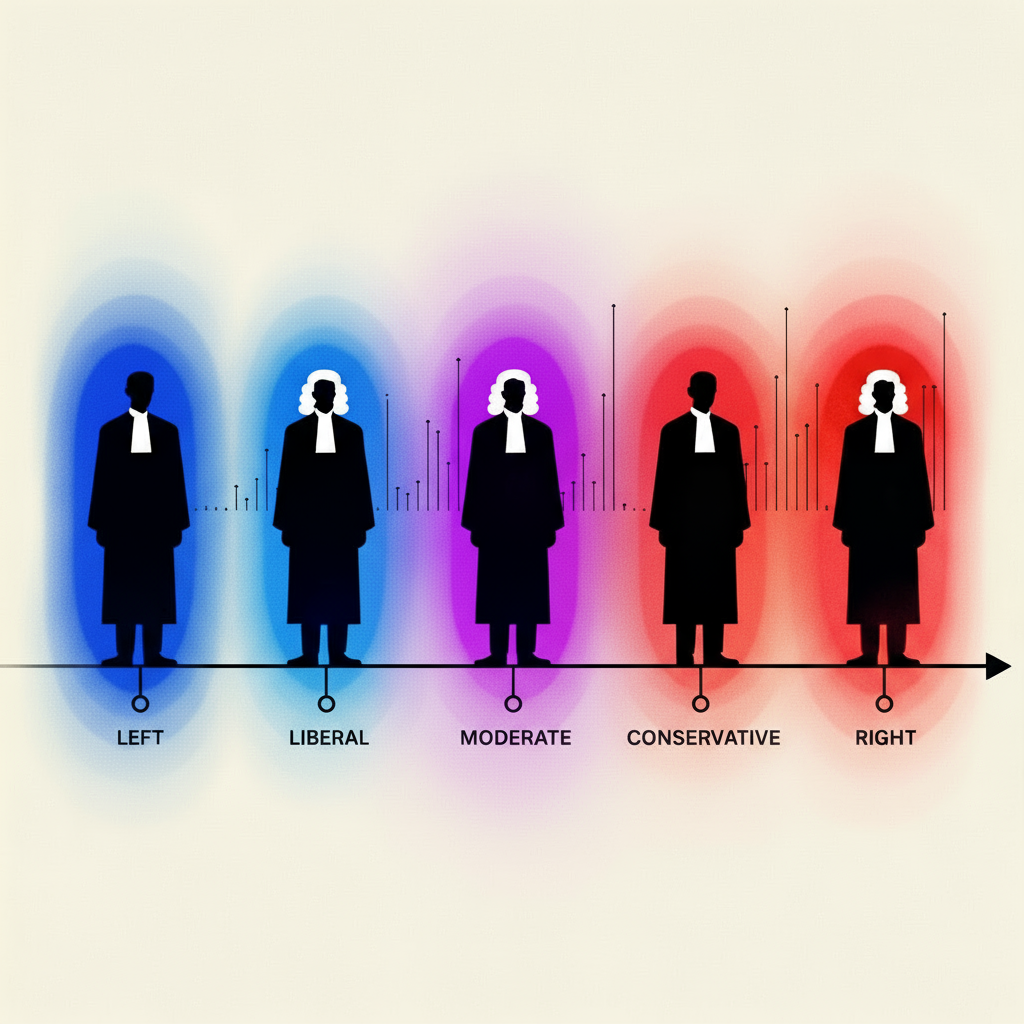Legal Data Lab
Where Data Meets Dicta

BR/MAG Judge Database
by Jon Ashley, Sarah New & Rebecca Owen
BR/MAG Judge Database
Biographical information on federal magistrate and bankruptcy judges. Updated continuously.
View Project
Corporate Prosecution Registry
by Brandon Garrett & Jon Ashley
Corporate Prosecution Registry
Comprehensive and up-to-date information on federal organizational prosecutions in the United States. Now hosted by Duke University School of Law.
View Project
Hedge Fund Documents Database
Hedge Fund Documents Database
This library collection contains hedge fund operating agreements and private placement memorandums.
View Project
Enforcement Actions Against Global Banks
by Pierre-Hugues Verdier
Enforcement Actions Against Global Banks
Criminal enforcement actions brought by the U.S. Department of Justice against global banks during 2008-2016.
View Project
The Power Five: The Making of Newsworthy Deal Teams
by Tracey E. George, Mitu Gulati & Albert Yoon
The Power Five: The Making of Newsworthy Deal Teams
This paper explores the organizational dynamics affecting women's opportunities and outcomes in law firms, analyzing over 10,000 deals and 50,000 attorneys from 2013 to 2023. By examining newsworthy deal teams—the power center of law firms—it sheds light on gender representation and leadership trends within the legal profession.
View Paper
Of Court Ordered
by C. Q. Le
Of Court Ordered
A chapter in Reimagining School Integration: Possibilities for the Future.
View Book
A Hierarchical Dictionary Method for Analyzing Legal and Political Texts Via Nested n-Grams
by Kevin Cope & Li Zhang
A Hierarchical Dictionary Method for Analyzing Legal and Political Texts Via Nested n-Grams
This paper presents a lexicon-based method for analyzing large legal and political text collections that can identify complex phrases and nested expressions while assigning values to the most informative linguistic units. The method offers advantages over machine learning and manual coding by providing high consistency and replicability when analyzing documents like court opinions, treaties, and contracts.
View Paper
The Federal Architecture of Income Inequality
by Andrew T. Hayashi
The Federal Architecture of Income Inequality
The author proposes a new composite measure of income inequality that accounts for different contexts through "allocative fields" including commodity markets and political entities, recognizing that income translates into goods affecting status and opportunity differently across geographic and institutional settings.
View Paper
The Jurist-Derived Judicial Ideology Scores (JuDJIS)
by Kevin Cope
The Jurist-Derived Judicial Ideology Scores (JuDJIS)
Introducing a new measure of judicial ideology — and other traits — that will locate on a single scale nearly every Article III U.S. federal judge serving since 1990 (approximately 4,900 judges).
View Project
Israel Shows Diaspora Bonds Can Work as Advertised
by Michael Bradley, Irving De Lira Salvatierra & Mitu Gulati
Israel Shows Diaspora Bonds Can Work as Advertised
Israel has successfully demonstrated that diaspora bonds can function as intended, providing low-cost crisis financing when traditional borrowing costs have surged following the October 2023 Hamas attacks. The country has raised over $3.5 billion through these bonds during the conflict, with diaspora investors accepting lower returns than market rates partly out of patriotic loyalty rather than purely financial motives
View Article
Consequential Damages Clauses: Alien Vomit or Intelligent Design?
by Tara Chowdhury, Faith Chudkowski, Amanda Dixon, Rishabh Sharma, Madison Sherrill, Hadar Tanne, Stephen J. Choi & Mitu Gulati
Consequential Damages Clauses: Alien Vomit or Intelligent Design?
The paper examines whether consequential damages clauses in M&A contracts result from careful design or inherited boilerplate, finding that industry efforts around 2015 led to significant drafting improvement.
View Paper
The SCOTUS Tournament: Winning Isn't Everything
by Tracey E. George, Albert Yoon & Mitu Gulati
The SCOTUS Tournament: Winning Isn't Everything
By analyzing an extensive dataset of lawyer appearances and win rates in the SCOTUS bar, this paper challenges existing narratives about the rise of repeat players and their impact on case outcomes, contributing significantly to our understanding of elite legal representation at the highest level of the American judicial system.
View Paper
Costs, Conflicts, and College Savings: Evaluating Section 529 Savings Plans
by Quinn Curtis
Costs, Conflicts, and College Savings: Evaluating Section 529 Savings Plans
This study provides the first comprehensive evaluation of Section 529 college savings plans, revealing significant cost variations with many plans being "egregiously expensive". It uncovers problematic cross-subsidization where some states use plan fee revenues to fund activities that don't directly benefit investors, potentially undermining state administrators' incentives to negotiate lower costs for families.
View Paper
Retirement Guardrails: How Proactive Fiduciaries Can Improve Plan Outcomes
by Ian Ayres & Quinn Curtis
Retirement Guardrails: How Proactive Fiduciaries Can Improve Plan Outcomes
View Book
Style and substance on the US Supreme Court
by Keith Carlson, Daniel N. Rockmore, Allen Riddell, Jon Ashley & Michael A. Livermore
Style and substance on the US Supreme Court
This research chapter uses natural language processing and computational text analysis to examine Supreme Court opinions as crucial data for understanding legal thought evolution, focusing on two areas: analyzing trends in judicial writing style through sentiment analysis and stylometry, and comparing Supreme Court content to lower federal appellate courts to determine if the Court has developed a distinctive judicial genre.
View Paper
Underdevelopment Despite Upzoning
by Richard Schragger & Sarah New
Underdevelopment Despite Upzoning
This paper challenges the common assumption that restrictive zoning regulations are the primary constraint limiting housing supply and increasing costs. Through a case study of Charlottesville, Virginia, the research reveals significant underdevelopment of parcels even under current zoning classifications, suggesting that many properties remain untapped despite being zoned for additional housing units.
View Paper
An Expert-Sourced Measure of Judicial Ideology
by Kevin Cope
An Expert-Sourced Measure of Judicial Ideology
This paper introduces JuDJIS (Jurist-Derived Judicial Ideology Scores), the first dynamic method for measuring federal judges' ideologies using computational text analysis of over 20,000 written evaluations from an ongoing survey of jurists since 1985. The method significantly outperforms existing static measures like the Judicial Common Space in predicting case outcomes and could enable new breakthroughs in courts research that were previously impossible due to data limitations.
View Paper
Frequently Unanswered Questions: Scrutinizing the IRS's Informal Guidance
by Marilyn Hajj
Frequently Unanswered Questions: Scrutinizing the IRS's Informal Guidance
This study evaluates the readability of IRS Frequently Asked Questions, especially those intended to assist lower-income taxpayers. Using standard and modified readability metrics, it finds that IRS FAQs are as difficult to read as legal scholarship and far less accessible than materials like the Virginia Driver’s Manual. The paper calls for applying cognitive psychology, psycholinguistics, and NLP methods to ensure IRS guidance is understandable to the general public.
View Paper
The ESG Backlash and the Demand for ESG Mutual Funds
by Quinn Curtis
The ESG Backlash and the Demand for ESG Mutual Funds
The paper analyzes shifts in investor demand for ESG mutual funds, showing that enthusiasm for ESG-driven investment peaked in 2019 and declined before the recent political backlash. It finds no causal link between state-level anti-ESG measures or conservative media attention and ESG fund outflows, suggesting the downturn was primarily market-driven rather than politically induced.
View Paper
Trump v. Biden Judges
by Stephen J. Choi & Mitu Gulati
Trump v. Biden Judges
This study examines the performance of federal judges appointed by Presidents Trump and Biden, measuring productivity, quality, and independence. The initial analysis found that Trump appointees performed as well or better than judges selected by Obama and Bush, while Biden appointees underperformed compared to Trump's selections. A follow-up assessment conducted to see if Biden's judges would improve with more experience on the bench confirms that Trump appointees continue to outperform Biden appointees on these metrics.
View Paper